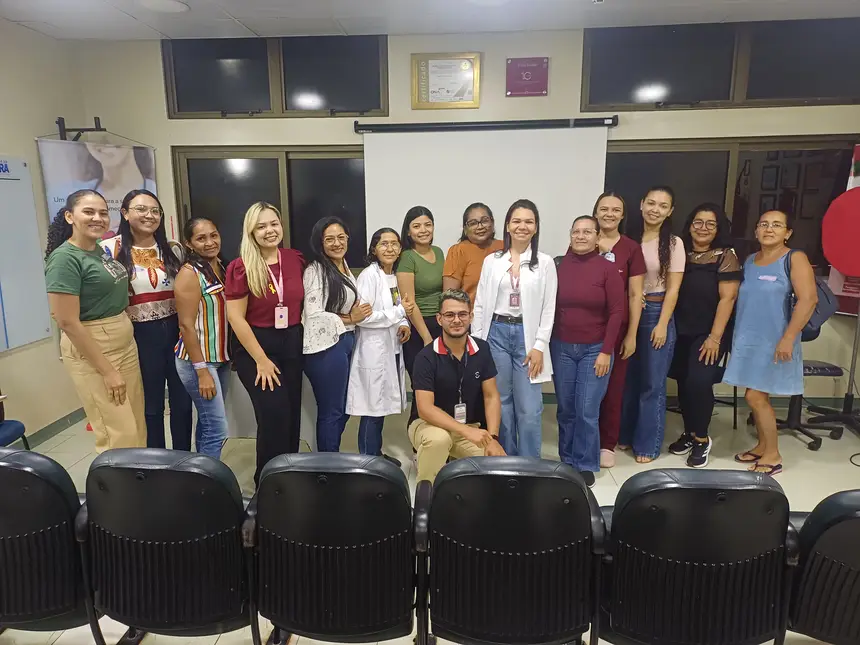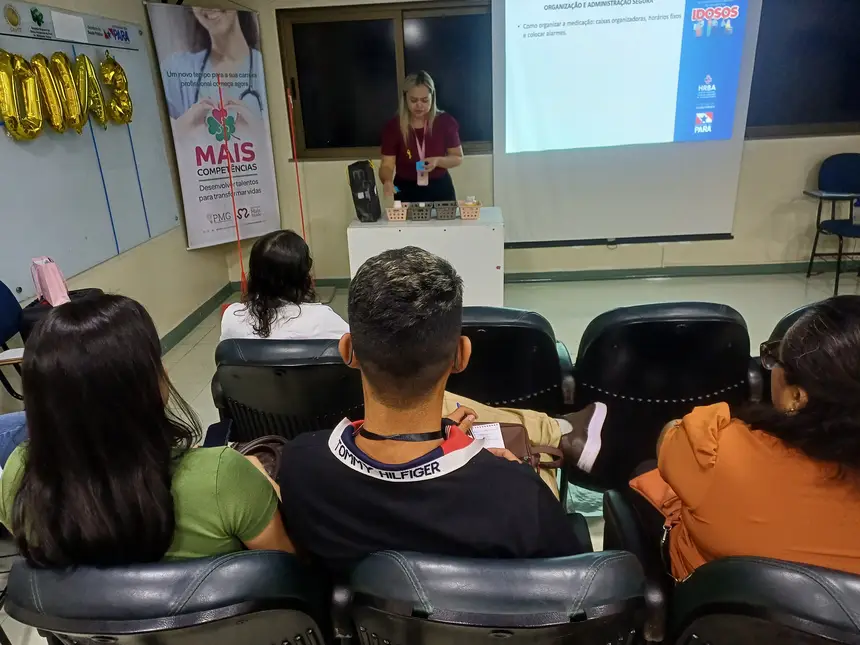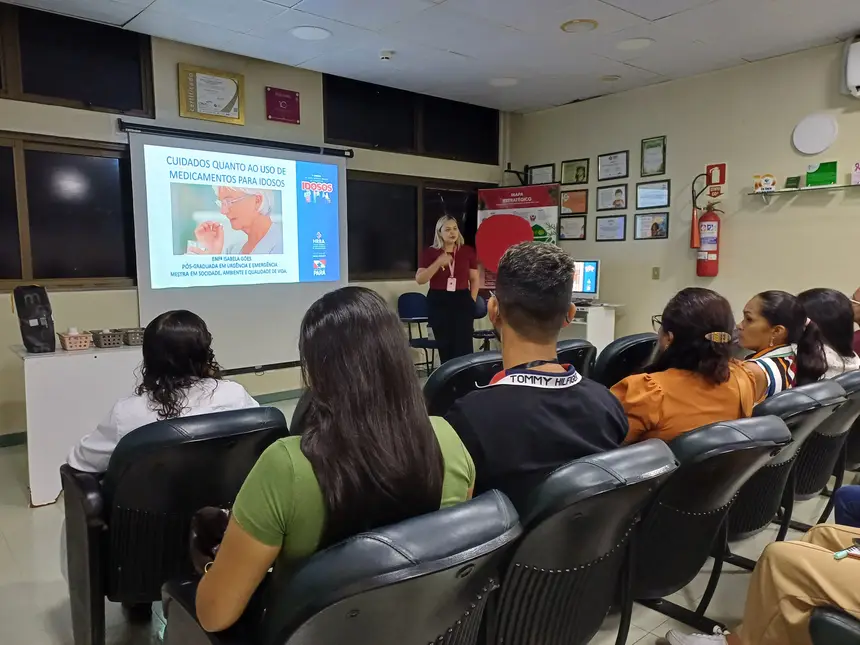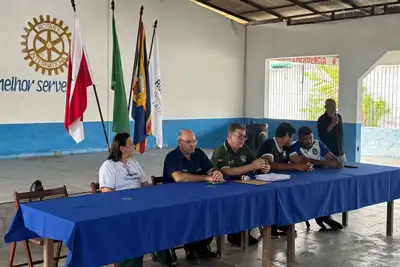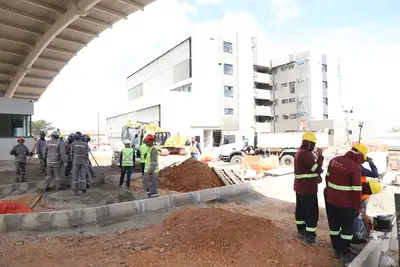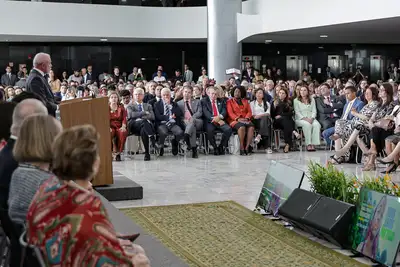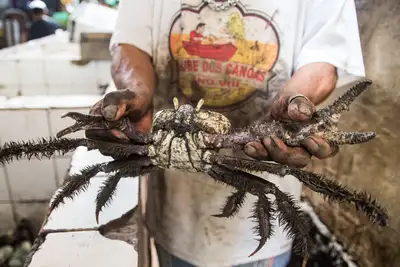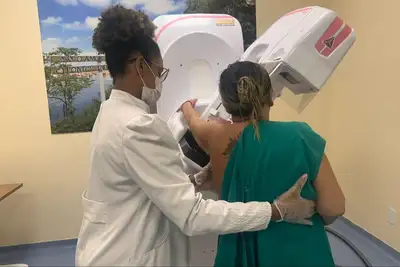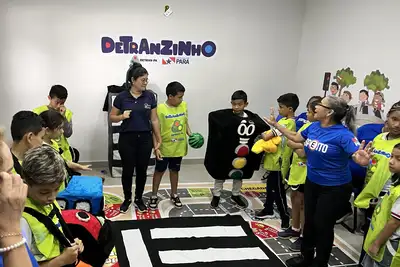Regional Hospital in Santarém offers free course for elderly caregivers
With classes taught by professionals from the unit, the event aims to prepare participants to enter the job market and also update the knowledge of those already working in the field
University student Jandria Neves, who has been working as an elderly caregiver since 2022, started a course at the Dr. Waldemar Penna Regional Hospital of Lower Amazon (HRBA) in Santarém, western Pará, on Wednesday (10), aiming to seek more qualification. "It is an opportunity to enhance technical knowledge. I found this first day very interesting. There is a lot we need to remember, and we end up forgetting in our daily lives. It certainly brings benefits for me and also improves the quality of life of the elderly being cared for," said Jandria.
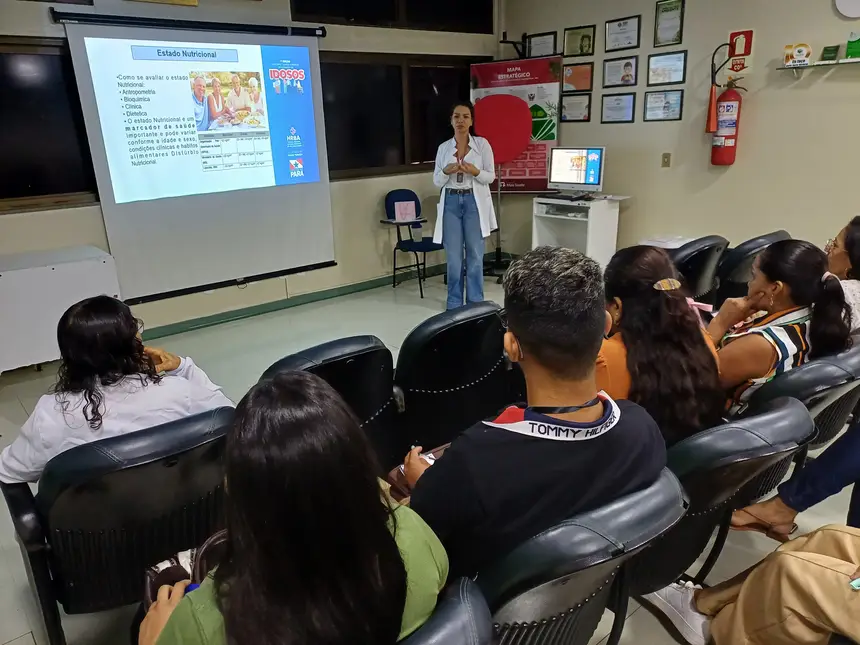
As a reference in medium and high complexity for about 1.4 million people residing in 29 municipalities in western Pará, HRBA has started the activities of the first class of the Theoretical and Practical Course for Elderly Caregivers. The classes are taught by professionals from the Hospital until the next day 13 (Saturday), free of charge.
"We want to offer society knowledge, training, and education, bringing this information to people who cannot afford such a course. Our collaborators are fully prepared, through their experiences and certifications, to pass on this knowledge to our students," highlighted HRBA's Assistant Manager, Monica Bianca Barros.
Profession - According to the Population Projections of the Brazilian Institute of Geography and Statistics (IBGE), from 2000 to 2023, the proportion of elderly people (people aged 60 or older) in the Brazilian population nearly doubled, rising from 8.7% to 15.6%. In absolute numbers, the total number of elderly people increased from 15.2 million to 33 million during this period. According to the study, by 2070, about 37.8% of the country's population will be elderly, which will correspond to 75.3 million people aged 60 or older.
The professional who cares for the elderly has been gaining space in society. Doriedson Estevão de Sousa, 55, has been working in this area for six years and also approved the course being held at the Regional Hospital. "It is always important to renew knowledge. It makes a difference for me, for the elderly, and for their families. The first day was wonderful; it only reinforced what I already work on. It will help in my work, and I will also pass this knowledge on to other people," he emphasized.
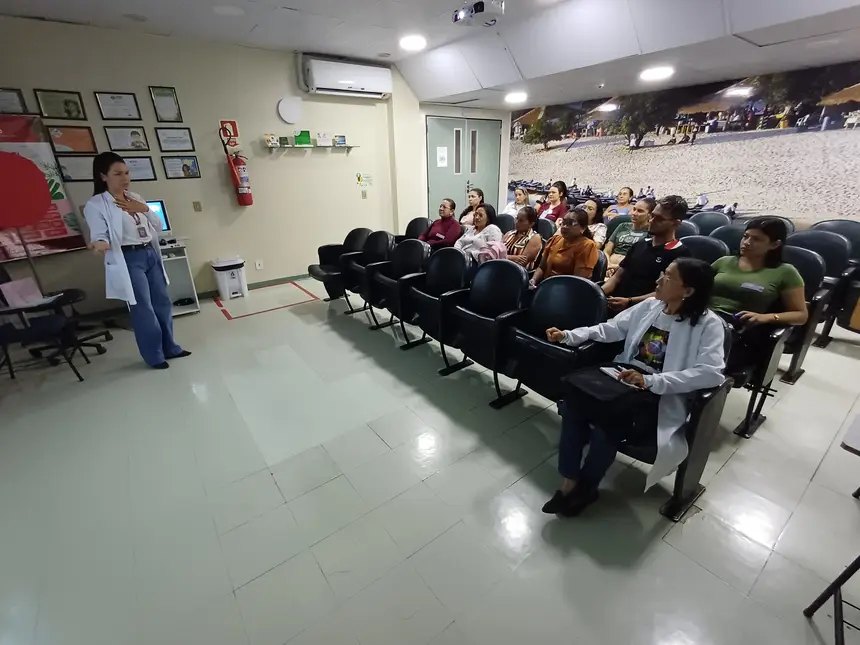
Program - On the first day, the classes covered elderly physiology; nutritional status and diet therapy, and care regarding medication use. Starting this Thursday (11), participants will receive more practical classes related to daily life.
The course will have a workload of 40 hours, and at the end of the event, students will receive a certificate of participation. The project is developed by the Social Institute Mais Saúde, which manages the Regional Hospital of Lower Amazon, in partnership with the State Department of Public Health (Sespa).
"Our goal is not only to train the assistive work of these professionals with the elderly but also to assist them in the approach, which ranges from hygiene, nutrition, and even the humanization and psychosocial aspects of this role. In addition to already being integrated into the local and even national society as a reference unit in high-complexity assistance, we also fulfill our mission with these training processes. We are very happy and hope this will be the first class of many," concluded HRBA's General Director, Matheus Coutinho.
Service: HRBA provides medium and high complexity services 100% referenced, meeting the demand originating from the State Regulation Center. The unit is located at Avenida Sérgio Henn, No. 1100, in the Diamantino neighborhood, in Santarém.


